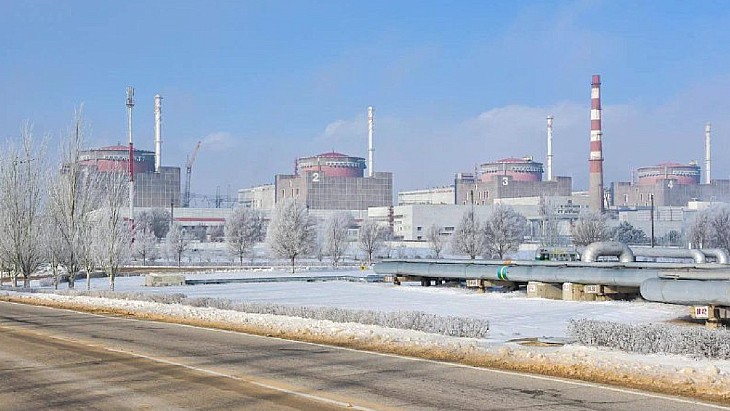The current director of Zaporizhzhia Nuclear Power Plant (ZNPP), Yuriy Chernichuk, in comments reported by Strana Rosatom said: "Our units have been idle for a long time. Before launching, we will have to carry out a large complex of works to inspect the equipment, repairs, confirm the operability, readiness of the unit for operation."
Russia's nuclear regulator had temporarily recognised Ukrainian nuclear supervision license, he said, but all ZNPP's operations must meet Russian regulations and laws by 2028 for all units.
He said: "We are considering the most realistic option is to first launch units 2 and 6, whose active zones are loaded with Russian-made fuel. All of them were stopped back in September 2022, and since then none of them have operated in generation mode."
One key area of work, he said, was the water supply, following the destruction of the Kakhovka dam, which had previously supplied water. He said they were working on various options, including using the Dnieper river as a source "but of course, it will take a certain amount of time to implement them. I will say this cautiously: it is not one day or one month. And I must immediately stipulate that the starting point for the implementation of all the measures that we are discussing will be the end of hostilities and some guarantee of peace and quiet at the Zaporizhzhya NPP and the territory adjacent to it".
He also said that there would need to be work done to restore power lines from the plant and to decide on the customers for the output of the plant, saying it might provide the chance to redirect the capacity of Rostov NPP "to the energy-deficient North Caucasus ... 6000 MW is quite a serious capacity even for such a large country as ours. Naturally, this will require a redistribution of electricity flows".
The most labour-intensive work required would be inspecting, repairing and preparing equipment and the units for operation. The licence for the first unit expires at the end of 2025 so a new licence will be needed from Russia's nuclear regulator Rostekhnadzor, even if the unit is in cold shutdown. He also said there were other issues, such as there not being a railway line to the plant for the transport of nuclear fuel.
Ukraine rejects restart planning
The Zaporizhzhia Nuclear Power Plant was Ukraine's largest, with six units, before it came under Russian military control in March 2022. It is positioned on the frontline of Russian and Ukrainian forces and its future has reportedly been one of the subjects tackled in talks held recently seeking a potential ceasefire and end to the conflict.
Energoatom, which operates Ukraine's nuclear power plants, has maintained throughout the conflict that the only way to restore safety and security at ZNPP is for an end to the Russian occupation and its return to the control of its legal Ukrainian operator, Energoatom.
Energoatom added: "The technical state of the ZNPP and the conditions created ... such as limited communication lines with the power grid, exhaustion of design service life for fuel and equipment, unqualified unlicensed personnel, non-availability of ultimate heat sink, etc, provide solid grounds to confirm that restarting the plant in its current state is technically impossible."
The company said that the condition of critical safety systems had worsened and said that military presence at, and around, the site "are key risk factors that cannot be ignored".
The International Atomic Energy Agency (IAEA) has had experts at the plant since September 2022 as part of efforts to minimise safety and security risks, including during periods where there has had to be a reliance on back-up diesel generators when external power supplies have been lost.
In IAEA Director General Rafael Mariano Grossi's latest update on the situation, he said agency staff this week "reported hearing military activities at varying distances away from the site. The team continued to monitor nuclear safety and security, conducting a walkdown of the reactor buildings of units 1, 3 and 5 and of the turbine halls of units 1 and 2".
Agency teams at Khmelnitsky, Rivne and South Ukraine nuclear power plants all reported hearing air raid alarms over the past week, and at Chernobyl a drone and a loud explosion was heard on 30 March.





_52351.jpg)


_15863.jpg)






